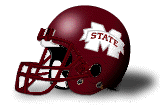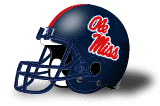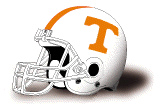With about four of the longest months of the year between now and the magical first Saturday in September, let’s spend some off-season bandwidth discussing the temperatures of the seats the current crop of 12 SEC football coaches. Some are predictably safe, others are quite warm with the prospects of a core breach and complete meltdown.
Our Scale: 1—Ice Cold to 10—Nuclear.
This a completely subjective analysis, and it is not meant to illustrate how much danger one coach is in vis-a-vis one of the others. Mark Richt’s status at Georgia has no impact on either Muschamp or Dooley. Houston Nutt’s has no impact on Dan Mullen, and vice versa. It’s all about past performance, perceived ability to be competitive in the country’s toughest league and whether fans, alumni and administrations think the prospect for future competitiveness warrants action.
So, in alphabetical order:
 Alabama; Nick Saban. One of the three safest coaches in the conference. Saban has put Alabama back at the top of everyone’s national championship short lists and with good reason. Back-to-back-to-back recruiting classes have the Crimson Tide absolutely loaded from sideline to sideline, on both sides of the ball, two and sometimes three steps deep. He has won 35 games in three years, with two SEC West Titles, two undefeated regular seasons, an SEC Championship and the program’s league-leading 13th National Championship. His defensive philosophy is akin to unleashing 11 ferocious lions upon the hapless martyrs of opposing offenses and his pro-style offense is geared towards attracting and developing NFL-caliber players. Saban is going nowhere anytime soon. He’s a 1.
Alabama; Nick Saban. One of the three safest coaches in the conference. Saban has put Alabama back at the top of everyone’s national championship short lists and with good reason. Back-to-back-to-back recruiting classes have the Crimson Tide absolutely loaded from sideline to sideline, on both sides of the ball, two and sometimes three steps deep. He has won 35 games in three years, with two SEC West Titles, two undefeated regular seasons, an SEC Championship and the program’s league-leading 13th National Championship. His defensive philosophy is akin to unleashing 11 ferocious lions upon the hapless martyrs of opposing offenses and his pro-style offense is geared towards attracting and developing NFL-caliber players. Saban is going nowhere anytime soon. He’s a 1.
 Arkansas; Bobby Petrino. The Razorbacks showed flashes of offensive brilliance in 2010 but lacked the killer instinct shown by West rivals. Part of that is youth and lack of depth. Petrino arrived to a team that Houston Nutt didn’t leave well stocked with top-drawer talent. By getting his own guys in place and coaching them up, Petrino is improving Arkansas’ threat to break through the SEC West logjam. As long as they continue to recruit well and improve, there will be more BCS Bowl appearances and a legitimate shot at some trophy case hardware. He’s a 2, only because the SEC West is brutal and making steady improvement is a hard row to hoe.
Arkansas; Bobby Petrino. The Razorbacks showed flashes of offensive brilliance in 2010 but lacked the killer instinct shown by West rivals. Part of that is youth and lack of depth. Petrino arrived to a team that Houston Nutt didn’t leave well stocked with top-drawer talent. By getting his own guys in place and coaching them up, Petrino is improving Arkansas’ threat to break through the SEC West logjam. As long as they continue to recruit well and improve, there will be more BCS Bowl appearances and a legitimate shot at some trophy case hardware. He’s a 2, only because the SEC West is brutal and making steady improvement is a hard row to hoe.
 Auburn; Gene Chizik. Another 2, because Auburn fans may grow restless down the stretch of a scary schedule. Graduation and early departures decapitated the team’s senior leadership structure and true freshmen have real shots at starting roles. That never bodes well in this league. To his credit, Chizik has surrounded himself with a very good staff and has recruited top-drawer talent. But that talent is awfully young. I know it sounds crazy to rank the coach of the defending champions anything other that an Ice Cold 1, but the 2011 schedule really is brutal and to think there won’t be grumbling is to fail to understand the football culture in this state. The flies in the ointment for Chizik are the myriad of NCAA investigations into the program. If those result in allegations of major rules violations, things warm up, and warm up quickly.
Auburn; Gene Chizik. Another 2, because Auburn fans may grow restless down the stretch of a scary schedule. Graduation and early departures decapitated the team’s senior leadership structure and true freshmen have real shots at starting roles. That never bodes well in this league. To his credit, Chizik has surrounded himself with a very good staff and has recruited top-drawer talent. But that talent is awfully young. I know it sounds crazy to rank the coach of the defending champions anything other that an Ice Cold 1, but the 2011 schedule really is brutal and to think there won’t be grumbling is to fail to understand the football culture in this state. The flies in the ointment for Chizik are the myriad of NCAA investigations into the program. If those result in allegations of major rules violations, things warm up, and warm up quickly.
 Florida; Will Muschamp. A scion of the Saban Line. He’s in his first year. He comes with a stellar resume. 1, easy. Former coach Urban Meyer left the team stocked with top-caliber talent. Muschamp is already showing great leadership in meting out swift, sure discipline, the only think that Meyer’s tenure seemed to fall short on. Muschamp should have the Gators right back in the thick of the SEC East race, and his team will make it tough for anyone other than the Gators to return to Atlanta in December in his very first year. Which may not bode well for…
Florida; Will Muschamp. A scion of the Saban Line. He’s in his first year. He comes with a stellar resume. 1, easy. Former coach Urban Meyer left the team stocked with top-caliber talent. Muschamp is already showing great leadership in meting out swift, sure discipline, the only think that Meyer’s tenure seemed to fall short on. Muschamp should have the Gators right back in the thick of the SEC East race, and his team will make it tough for anyone other than the Gators to return to Atlanta in December in his very first year. Which may not bode well for…
 Georgia; Mark Richt. One of the most well regarded coaches in the league by sportswriters and his peers. But Georgia seems to be slipping out of the top tier of the league. In five years, Georgia is 23-16 in the SEC and 13-12 against the SEC East. 1-4 against Florida. Those are Jim Donnan-type numbers. Richt’s saving grace is that he’s the only coach in UGA history to have four straight 10-win seasons. He’s won two SEC Titles and been BCS bowling. One has to wonder that if the Bulldogs aren’t in Atlanta this December, UGA decides to make a change. Gotta be a 7, here.
Georgia; Mark Richt. One of the most well regarded coaches in the league by sportswriters and his peers. But Georgia seems to be slipping out of the top tier of the league. In five years, Georgia is 23-16 in the SEC and 13-12 against the SEC East. 1-4 against Florida. Those are Jim Donnan-type numbers. Richt’s saving grace is that he’s the only coach in UGA history to have four straight 10-win seasons. He’s won two SEC Titles and been BCS bowling. One has to wonder that if the Bulldogs aren’t in Atlanta this December, UGA decides to make a change. Gotta be a 7, here.
 Kentucky; Joker Phillips. Another one of the league’s most highly regarded football coaches, Phillips is only in his second year as Head Coach of his alma mater. His commitment to academics, team discipline and athletics plays well, and his inaugural 2010 team made a bowl game. As long as the Wildcats don’t embarrass Kentucky fans and keep them busy in the run-up to basketball season, Phillips is probably in for a long tenure in Lexington. If he manages to get the ‘cats to the level of contending for the SEC East title, he’ll get a statue. 2, here.
Kentucky; Joker Phillips. Another one of the league’s most highly regarded football coaches, Phillips is only in his second year as Head Coach of his alma mater. His commitment to academics, team discipline and athletics plays well, and his inaugural 2010 team made a bowl game. As long as the Wildcats don’t embarrass Kentucky fans and keep them busy in the run-up to basketball season, Phillips is probably in for a long tenure in Lexington. If he manages to get the ‘cats to the level of contending for the SEC East title, he’ll get a statue. 2, here.
 LSU; Les Miles. The only reason I give Miles a 3 is because Tiger fans are notoriously impatient. There are three reasons why they shouldn’t grumble at the Mad Hatter. He wins football games. His kids stay out of trouble and he absolutely owns the fertile recruiting grounds of Louisiana. What more could you ask for in a good football coach? National Title? Check. SEC Title? Check. Crazy endings to big games? Check. He’s always going to deliver good entertainment and good football.
LSU; Les Miles. The only reason I give Miles a 3 is because Tiger fans are notoriously impatient. There are three reasons why they shouldn’t grumble at the Mad Hatter. He wins football games. His kids stay out of trouble and he absolutely owns the fertile recruiting grounds of Louisiana. What more could you ask for in a good football coach? National Title? Check. SEC Title? Check. Crazy endings to big games? Check. He’s always going to deliver good entertainment and good football.
 Mississippi State; Dan Mullen. The third of the three safest coaches in the league, rated at 1. Mullen is steadily building a good program in the middle of nowhere, Mississippi. The man appears to be an offensive genius and may well have been the reason for Urban Meyer’s uncanny run of victories that led to two crystal trophies. Mississippi State seems to have found their man. The only question is, if he keeps winning, can they afford to keep him?
Mississippi State; Dan Mullen. The third of the three safest coaches in the league, rated at 1. Mullen is steadily building a good program in the middle of nowhere, Mississippi. The man appears to be an offensive genius and may well have been the reason for Urban Meyer’s uncanny run of victories that led to two crystal trophies. Mississippi State seems to have found their man. The only question is, if he keeps winning, can they afford to keep him?
 Ole Miss; Houston Nutt. The hottest seat in the league at 9 and rising. Ole Miss is a dumpster fire of a football program. You follow Ed “Yaw Yaw” Orgeron with the biggest snake oil salesman in the conference? The school is being sued by the family of a kid who died during conditioning drills. Players have been arrested and kicked off the team. Despite winning the oversigning National Championship two years ago by accepting National Letters of Intent from like, 448 players or something, the 2011 squad will have only 73 players on scholarship. Ole Miss will be lucky to win one game in the SEC. The only thing that could possibly save Nutt’s job would be their first ever trip to Atlanta, and that just ain’t happening.
Ole Miss; Houston Nutt. The hottest seat in the league at 9 and rising. Ole Miss is a dumpster fire of a football program. You follow Ed “Yaw Yaw” Orgeron with the biggest snake oil salesman in the conference? The school is being sued by the family of a kid who died during conditioning drills. Players have been arrested and kicked off the team. Despite winning the oversigning National Championship two years ago by accepting National Letters of Intent from like, 448 players or something, the 2011 squad will have only 73 players on scholarship. Ole Miss will be lucky to win one game in the SEC. The only thing that could possibly save Nutt’s job would be their first ever trip to Atlanta, and that just ain’t happening.
 South Carolina; Steve Spurrier. An easy 1 here, but Spurrier is the type of coach that, if he doesn’t think he’s getting it done, would step aside before USC made a move. Not to worry, though. South Carolina’s first ever visit to Atlanta under Spurrier and upset of defending national champion Alabama has Gamecock fans more than willing to give him all the time he wants to figure out when he should retire. A very good 2011 recruiting class is gravy, too.
South Carolina; Steve Spurrier. An easy 1 here, but Spurrier is the type of coach that, if he doesn’t think he’s getting it done, would step aside before USC made a move. Not to worry, though. South Carolina’s first ever visit to Atlanta under Spurrier and upset of defending national champion Alabama has Gamecock fans more than willing to give him all the time he wants to figure out when he should retire. A very good 2011 recruiting class is gravy, too.
 Tennessee; Derek Dooley. Another scion of the Saban Line, with all of the character and motivational skills needed to be a successful head football coach, Dooley may still not quite be ready for big time football in the SEC. He’s recruited Ok. He seems to have control over a program that Lane Kiffin was letting run wild. But his resume was thin before he arrived at Rocky Top. He rates a 4. He’s almost certainly safe to return in 2012, barring a complete meltdown of a 2011 season. I think there’s enough room in the schedule to prevent that from happening. Win any two of the first three SEC matchups and the seat goes ice cold.
Tennessee; Derek Dooley. Another scion of the Saban Line, with all of the character and motivational skills needed to be a successful head football coach, Dooley may still not quite be ready for big time football in the SEC. He’s recruited Ok. He seems to have control over a program that Lane Kiffin was letting run wild. But his resume was thin before he arrived at Rocky Top. He rates a 4. He’s almost certainly safe to return in 2012, barring a complete meltdown of a 2011 season. I think there’s enough room in the schedule to prevent that from happening. Win any two of the first three SEC matchups and the seat goes ice cold.
 Vanderbilt; James Franklin. Another 1. He’s yet to coach a down of SEC football, and Vandy’s long tradition of being the only SEC school with ACC quality football seems a perfect fit for Maryland’s former offensive coordinator. This was probably a better marriage for the Commodores than it will be for Franklin. He might field competitive teams, but the only thing they’ll be competing for is staying ahead of Ole Miss, at least for the 2011 season. If the guy can recruit at the national level and compete with Stanford and Notre Dame for prospects, maybe he’s the guy that gets the Commodores up to SEC caliber play on the field.
Vanderbilt; James Franklin. Another 1. He’s yet to coach a down of SEC football, and Vandy’s long tradition of being the only SEC school with ACC quality football seems a perfect fit for Maryland’s former offensive coordinator. This was probably a better marriage for the Commodores than it will be for Franklin. He might field competitive teams, but the only thing they’ll be competing for is staying ahead of Ole Miss, at least for the 2011 season. If the guy can recruit at the national level and compete with Stanford and Notre Dame for prospects, maybe he’s the guy that gets the Commodores up to SEC caliber play on the field.
There you have it—a league of relative extremes with few in the middle. Saban, Muschamp, Mullen and Spurrier are the safest. They are followed closely by Franklin, Miles, Chizik, Petrino and Phillips. All of these guys are lead pipe locks to return for the 2012 season. The hottest seat in the league is that of Nutt, with Richt also possibly facing some music at the end of 2011. Dooley is the league’s only real question mark, but he’s better than even odds to come back.
Follow me on Twitter and Facebook.
 Monday’s sudden resignation of former Ohio State coach Jim Tressel literally rocked the college football world. Here’s a sampling of the shock waves that rippled through the national media and sports blogs.
Monday’s sudden resignation of former Ohio State coach Jim Tressel literally rocked the college football world. Here’s a sampling of the shock waves that rippled through the national media and sports blogs.

 In a column posted yesterday, Fox Sports’ Pete Fiutak takes the NCAA to task for what he sees as a
In a column posted yesterday, Fox Sports’ Pete Fiutak takes the NCAA to task for what he sees as a  Mark Emmert was named the NCAA President on April 27, 2010. Emmert almost immediately began talking up a
Mark Emmert was named the NCAA President on April 27, 2010. Emmert almost immediately began talking up a  Before anyone accuses me of chauvinism in even suggesting that Samantha Steele needs defending, let me point out that
Before anyone accuses me of chauvinism in even suggesting that Samantha Steele needs defending, let me point out that 
 It’s the ultimate financial wedge. Both the Big Ten and now the SEC are speaking publicly harmoniously about amending NCAA rules to allow schools to cover not only the costs of an scholarship (tuition, room, books and fees), but also provide a per diem allowance to cover everyday costs such as clothing, medicines, toothpaste and other necessities.
It’s the ultimate financial wedge. Both the Big Ten and now the SEC are speaking publicly harmoniously about amending NCAA rules to allow schools to cover not only the costs of an scholarship (tuition, room, books and fees), but also provide a per diem allowance to cover everyday costs such as clothing, medicines, toothpaste and other necessities. A young life has apparently been cut tragically short, as internet news reports indicate that Alabama offensive lineman Aaron Douglas has died in the Jacksonville, Florida area.
A young life has apparently been cut tragically short, as internet news reports indicate that Alabama offensive lineman Aaron Douglas has died in the Jacksonville, Florida area.  This gentleman—and I use that term in the loosest possible definition—thought he’d stage a flag-burning protest right in the middle of the campus at Louisiana State University.
This gentleman—and I use that term in the loosest possible definition—thought he’d stage a flag-burning protest right in the middle of the campus at Louisiana State University.

 Alabama; Nick Saban. One of the three safest coaches in the conference. Saban has put Alabama back at the top of everyone’s national championship short lists and with good reason. Back-to-back-to-back recruiting classes have the Crimson Tide absolutely loaded from sideline to sideline, on both sides of the ball, two and sometimes three steps deep. He has won 35 games in three years, with two SEC West Titles, two undefeated regular seasons, an SEC Championship and the program’s league-leading 13th National Championship. His defensive philosophy is akin to unleashing 11 ferocious lions upon the hapless martyrs of opposing offenses and his pro-style offense is geared towards attracting and developing NFL-caliber players. Saban is going nowhere anytime soon. He’s a 1.
Alabama; Nick Saban. One of the three safest coaches in the conference. Saban has put Alabama back at the top of everyone’s national championship short lists and with good reason. Back-to-back-to-back recruiting classes have the Crimson Tide absolutely loaded from sideline to sideline, on both sides of the ball, two and sometimes three steps deep. He has won 35 games in three years, with two SEC West Titles, two undefeated regular seasons, an SEC Championship and the program’s league-leading 13th National Championship. His defensive philosophy is akin to unleashing 11 ferocious lions upon the hapless martyrs of opposing offenses and his pro-style offense is geared towards attracting and developing NFL-caliber players. Saban is going nowhere anytime soon. He’s a 1. Arkansas; Bobby Petrino. The Razorbacks showed flashes of offensive brilliance in 2010 but lacked the killer instinct shown by West rivals. Part of that is youth and lack of depth. Petrino arrived to a team that Houston Nutt didn’t leave well stocked with top-drawer talent. By getting his own guys in place and coaching them up, Petrino is improving Arkansas’ threat to break through the SEC West logjam. As long as they continue to recruit well and improve, there will be more BCS Bowl appearances and a legitimate shot at some trophy case hardware. He’s a 2, only because the SEC West is brutal and making steady improvement is a hard row to hoe.
Arkansas; Bobby Petrino. The Razorbacks showed flashes of offensive brilliance in 2010 but lacked the killer instinct shown by West rivals. Part of that is youth and lack of depth. Petrino arrived to a team that Houston Nutt didn’t leave well stocked with top-drawer talent. By getting his own guys in place and coaching them up, Petrino is improving Arkansas’ threat to break through the SEC West logjam. As long as they continue to recruit well and improve, there will be more BCS Bowl appearances and a legitimate shot at some trophy case hardware. He’s a 2, only because the SEC West is brutal and making steady improvement is a hard row to hoe. Auburn; Gene Chizik. Another 2, because Auburn fans may grow restless down the stretch of a scary schedule. Graduation and early departures decapitated the team’s senior leadership structure and true freshmen have real shots at starting roles. That never bodes well in this league. To his credit, Chizik has surrounded himself with a very good staff and has recruited top-drawer talent. But that talent is awfully young. I know it sounds crazy to rank the coach of the defending champions anything other that an Ice Cold 1, but the 2011 schedule really is brutal and to think there won’t be grumbling is to fail to understand the football culture in this state. The flies in the ointment for Chizik are the myriad of NCAA investigations into the program. If those result in allegations of major rules violations, things warm up, and warm up quickly.
Auburn; Gene Chizik. Another 2, because Auburn fans may grow restless down the stretch of a scary schedule. Graduation and early departures decapitated the team’s senior leadership structure and true freshmen have real shots at starting roles. That never bodes well in this league. To his credit, Chizik has surrounded himself with a very good staff and has recruited top-drawer talent. But that talent is awfully young. I know it sounds crazy to rank the coach of the defending champions anything other that an Ice Cold 1, but the 2011 schedule really is brutal and to think there won’t be grumbling is to fail to understand the football culture in this state. The flies in the ointment for Chizik are the myriad of NCAA investigations into the program. If those result in allegations of major rules violations, things warm up, and warm up quickly. Florida; Will Muschamp. A scion of the Saban Line. He’s in his first year. He comes with a stellar resume. 1, easy. Former coach Urban Meyer left the team stocked with top-caliber talent. Muschamp is already showing great leadership in meting out swift, sure discipline, the only think that Meyer’s tenure seemed to fall short on. Muschamp should have the Gators right back in the thick of the SEC East race, and his team will make it tough for anyone other than the Gators to return to Atlanta in December in his very first year. Which may not bode well for…
Florida; Will Muschamp. A scion of the Saban Line. He’s in his first year. He comes with a stellar resume. 1, easy. Former coach Urban Meyer left the team stocked with top-caliber talent. Muschamp is already showing great leadership in meting out swift, sure discipline, the only think that Meyer’s tenure seemed to fall short on. Muschamp should have the Gators right back in the thick of the SEC East race, and his team will make it tough for anyone other than the Gators to return to Atlanta in December in his very first year. Which may not bode well for… Georgia; Mark Richt. One of the most well regarded coaches in the league by sportswriters and his peers. But Georgia seems to be slipping out of the top tier of the league. In five years, Georgia is 23-16 in the SEC and 13-12 against the SEC East. 1-4 against Florida. Those are Jim Donnan-type numbers. Richt’s saving grace is that he’s the only coach in UGA history to have four straight 10-win seasons. He’s won two SEC Titles and been BCS bowling. One has to wonder that if the Bulldogs aren’t in Atlanta this December, UGA decides to make a change. Gotta be a 7, here.
Georgia; Mark Richt. One of the most well regarded coaches in the league by sportswriters and his peers. But Georgia seems to be slipping out of the top tier of the league. In five years, Georgia is 23-16 in the SEC and 13-12 against the SEC East. 1-4 against Florida. Those are Jim Donnan-type numbers. Richt’s saving grace is that he’s the only coach in UGA history to have four straight 10-win seasons. He’s won two SEC Titles and been BCS bowling. One has to wonder that if the Bulldogs aren’t in Atlanta this December, UGA decides to make a change. Gotta be a 7, here. Kentucky; Joker Phillips. Another one of the league’s most highly regarded football coaches, Phillips is only in his second year as Head Coach of his alma mater. His commitment to academics, team discipline and athletics plays well, and his inaugural 2010 team made a bowl game. As long as the Wildcats don’t embarrass Kentucky fans and keep them busy in the run-up to basketball season, Phillips is probably in for a long tenure in Lexington. If he manages to get the ‘cats to the level of contending for the SEC East title, he’ll get a statue. 2, here.
Kentucky; Joker Phillips. Another one of the league’s most highly regarded football coaches, Phillips is only in his second year as Head Coach of his alma mater. His commitment to academics, team discipline and athletics plays well, and his inaugural 2010 team made a bowl game. As long as the Wildcats don’t embarrass Kentucky fans and keep them busy in the run-up to basketball season, Phillips is probably in for a long tenure in Lexington. If he manages to get the ‘cats to the level of contending for the SEC East title, he’ll get a statue. 2, here. LSU; Les Miles. The only reason I give Miles a 3 is because Tiger fans are notoriously impatient. There are three reasons why they shouldn’t grumble at the Mad Hatter. He wins football games. His kids stay out of trouble and he absolutely owns the fertile recruiting grounds of Louisiana. What more could you ask for in a good football coach? National Title? Check. SEC Title? Check. Crazy endings to big games? Check. He’s always going to deliver good entertainment and good football.
LSU; Les Miles. The only reason I give Miles a 3 is because Tiger fans are notoriously impatient. There are three reasons why they shouldn’t grumble at the Mad Hatter. He wins football games. His kids stay out of trouble and he absolutely owns the fertile recruiting grounds of Louisiana. What more could you ask for in a good football coach? National Title? Check. SEC Title? Check. Crazy endings to big games? Check. He’s always going to deliver good entertainment and good football.  Mississippi State; Dan Mullen. The third of the three safest coaches in the league, rated at 1. Mullen is steadily building a good program in the middle of nowhere, Mississippi. The man appears to be an offensive genius and may well have been the reason for Urban Meyer’s uncanny run of victories that led to two crystal trophies. Mississippi State seems to have found their man. The only question is, if he keeps winning, can they afford to keep him?
Mississippi State; Dan Mullen. The third of the three safest coaches in the league, rated at 1. Mullen is steadily building a good program in the middle of nowhere, Mississippi. The man appears to be an offensive genius and may well have been the reason for Urban Meyer’s uncanny run of victories that led to two crystal trophies. Mississippi State seems to have found their man. The only question is, if he keeps winning, can they afford to keep him? Ole Miss; Houston Nutt. The hottest seat in the league at 9 and rising. Ole Miss is a dumpster fire of a football program. You follow Ed “Yaw Yaw” Orgeron with the biggest snake oil salesman in the conference? The school is being sued by the family of a kid who died during conditioning drills. Players have been arrested and kicked off the team. Despite winning the oversigning National Championship two years ago by accepting National Letters of Intent from like, 448 players or something, the 2011 squad will have only 73 players on scholarship. Ole Miss will be lucky to win one game in the SEC. The only thing that could possibly save Nutt’s job would be their first ever trip to Atlanta, and that just ain’t happening.
Ole Miss; Houston Nutt. The hottest seat in the league at 9 and rising. Ole Miss is a dumpster fire of a football program. You follow Ed “Yaw Yaw” Orgeron with the biggest snake oil salesman in the conference? The school is being sued by the family of a kid who died during conditioning drills. Players have been arrested and kicked off the team. Despite winning the oversigning National Championship two years ago by accepting National Letters of Intent from like, 448 players or something, the 2011 squad will have only 73 players on scholarship. Ole Miss will be lucky to win one game in the SEC. The only thing that could possibly save Nutt’s job would be their first ever trip to Atlanta, and that just ain’t happening.  South Carolina; Steve Spurrier. An easy 1 here, but Spurrier is the type of coach that, if he doesn’t think he’s getting it done, would step aside before USC made a move. Not to worry, though. South Carolina’s first ever visit to Atlanta under Spurrier and upset of defending national champion Alabama has Gamecock fans more than willing to give him all the time he wants to figure out when he should retire. A very good 2011 recruiting class is gravy, too.
South Carolina; Steve Spurrier. An easy 1 here, but Spurrier is the type of coach that, if he doesn’t think he’s getting it done, would step aside before USC made a move. Not to worry, though. South Carolina’s first ever visit to Atlanta under Spurrier and upset of defending national champion Alabama has Gamecock fans more than willing to give him all the time he wants to figure out when he should retire. A very good 2011 recruiting class is gravy, too. Tennessee; Derek Dooley. Another scion of the Saban Line, with all of the character and motivational skills needed to be a successful head football coach, Dooley may still not quite be ready for big time football in the SEC. He’s recruited Ok. He seems to have control over a program that Lane Kiffin was letting run wild. But his resume was thin before he arrived at Rocky Top. He rates a 4. He’s almost certainly safe to return in 2012, barring a complete meltdown of a 2011 season. I think there’s enough room in the schedule to prevent that from happening. Win any two of the first three SEC matchups and the seat goes ice cold.
Tennessee; Derek Dooley. Another scion of the Saban Line, with all of the character and motivational skills needed to be a successful head football coach, Dooley may still not quite be ready for big time football in the SEC. He’s recruited Ok. He seems to have control over a program that Lane Kiffin was letting run wild. But his resume was thin before he arrived at Rocky Top. He rates a 4. He’s almost certainly safe to return in 2012, barring a complete meltdown of a 2011 season. I think there’s enough room in the schedule to prevent that from happening. Win any two of the first three SEC matchups and the seat goes ice cold.

 Give embattled Ohio State Head Football Coach Jim Tressel credit for
Give embattled Ohio State Head Football Coach Jim Tressel credit for 

 How would you like to be perhaps the only school to have been screwed out of a national championship by not one, but both systems?
How would you like to be perhaps the only school to have been screwed out of a national championship by not one, but both systems? Last week, news reports showed that the Department of Justice’s Antitrust Division had delivered a
Last week, news reports showed that the Department of Justice’s Antitrust Division had delivered a  Jefferson County, Alabama,
Jefferson County, Alabama,